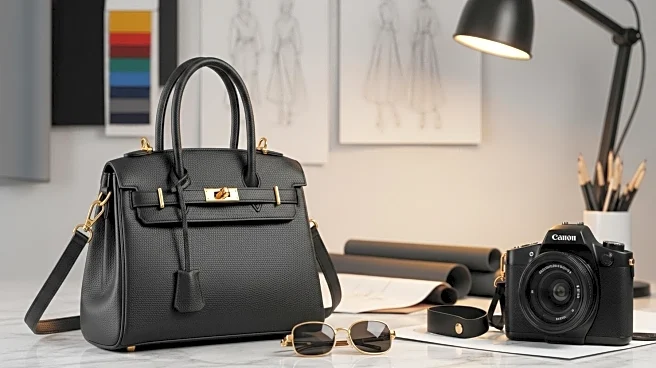What's Happening?
Maria Grazia Chiuri is reportedly poised to become the new creative director of Fendi, according to various sources. Chiuri, known for her feminist fashion approach, previously served as the creative director of Dior's womenswear collections, where she made history as the first female in that role. Her tenure at Dior was marked by iconic designs such as the 'We Should All Be Feminists' T-shirt. Chiuri's potential appointment at Fendi follows the departure of Silvia Venturini Fendi, and represents a return to her roots in Italy, where she began her career in the accessories department at Fendi in 1989.
Why It's Important?
Maria Grazia Chiuri's reported appointment as Fendi's creative director is significant for the fashion industry, as it highlights the ongoing influence of feminist themes in high fashion. Chiuri's leadership at Dior was characterized by a strong emphasis on women's empowerment, which resonated during the rise of the #metoo movement. Her move to Fendi could bring a fresh perspective to the brand, potentially influencing its design direction and market appeal. The transition also underscores the importance of diversity and female representation in leadership roles within the fashion industry.
What's Next?
If confirmed, Chiuri's appointment at Fendi could lead to a new era of design innovation and brand evolution. Her influence may drive Fendi to explore more socially conscious themes and expand its appeal to a broader audience. The fashion industry will be watching closely to see how Chiuri's vision aligns with Fendi's heritage and how it impacts the brand's global strategy. The transition may also prompt other luxury brands to consider similar leadership changes, reflecting broader industry trends towards inclusivity and diversity.
Beyond the Headlines
Chiuri's potential role at Fendi could have cultural implications, as her designs often challenge traditional norms and promote progressive values. Her focus on feminist fashion may inspire other designers to incorporate social issues into their work, fostering a more inclusive and socially aware fashion landscape. The move also highlights the interconnectedness of major fashion houses and the fluidity of creative talent across brands, which can lead to cross-pollination of ideas and styles.









